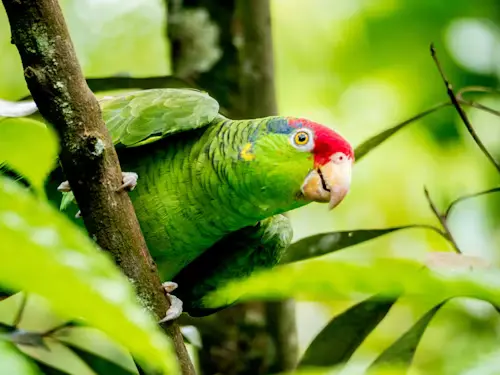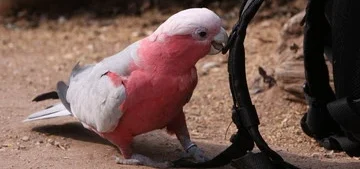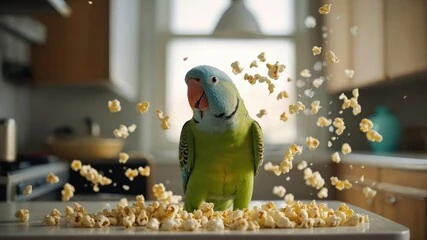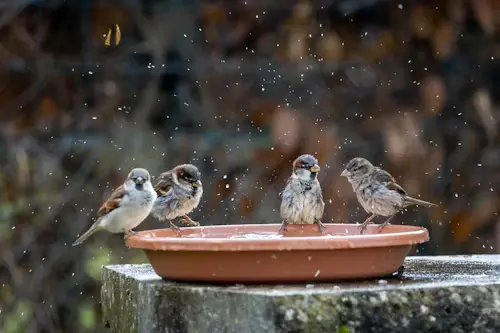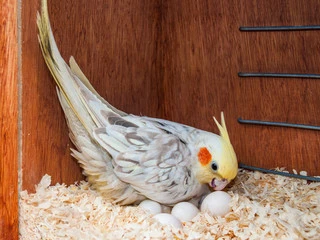White Zebra Finch: Best Happy Care Tips & Color Secrets
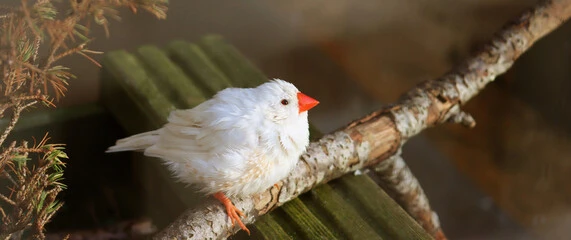
Have you ever peered into your aviary and gasped at a snow-white miracle among your zebra finches? I recall the day I spotted two ghostly beauties—flawlessly white, with pale beaks and ruby eyes—hatched from a pair of ordinary grays. They flickered like tiny ghosts against the green foliage, sparking my obsession with these White Zebra Finch (albino zebra finch) wonders.
You might’ve stumbled upon similar rarities or seen one at a rescue and felt instantly captivated. But beneath that magical plumage lies a world of genetic quirks, health nuances, and specialized care needs. This guide pulls back the curtain on the enchanting white zebra finch, blending science with heartfelt tales from finch lovers like you. Ready to dive deep?
Table of Contents
What Is a White Zebra Finch? Unlocking the Mystery
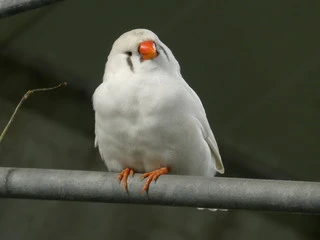
Zebra finches (Taeniopygia guttata) are native to Australia, typically adorned with iconic “zebra” stripes, orange cheek patches, and vibrant beaks. But zebra finch color variations can defy expectations—especially when a clutch births a white zebra finch. These birds aren’t merely pale; they’re genetic marvels.
Albino vs. White Mutation: The Science Explained
Many owners mistake white zebra finches for albinos. True albinos have no melanin—resulting in pure-white feathers, pink eyes, and pale beaks—but they’re vanishingly rare. Most white zebra finches are fully pied mutants, with faint gray markings (like tear marks) if you squint. I confirmed this with my own clutch: genetically, they trace back to recessive mutations that “switch off” pigmentation genes. Unlike albinos, they’re usually healthy and vision-unimpaired.
The Origin Story: How White Mutations Emerge
According to The FeederWatch database, sightings of wild white finches are rare—likely lost in predators’ crosshairs. Captive breeding reshuffles genetic decks. As one breeder shared: “I crossed Pied × Charcoal parents and got three icy-white chicks in one clutch!”
Physical Traits and Identification: Spotting the Snowflakes
Recognizing a unique finch is step one. Here’s how to ID them:
Distinguishing Features
- Feathers: Solid white or faint gray striping on wings.
- Beak and Legs: Pale pink (in albino types) vs. orange in pied whites.
- Eyes: Deep red in true albinos; dark otherwise.
Fun Note: At The White Finch Aviary, breeders document “snowballs”—whites with nearly invisible markings.
Sexing Challenges: Are Your Whites Male or Female?
One owner lamented: “I was sold two ‘females,’ but one fiercely attacked new males!”* Females typically lack cheek patches, but white mutations muddle this. Key clues:
- Males might display subtle orange breast flushes.
- Females chirp softly; males sing complex melodies.
When in doubt, DNA test via avian vets!
White Zebra Finch Care: Specialized Health and Wellness
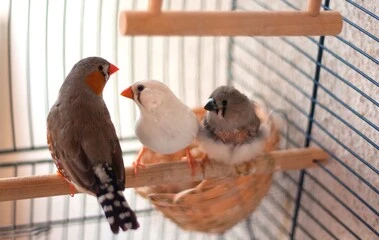
White mutations aren’t inherently weaker—but their care demands vigilance. I learned this the hard way when one “snowball” grew lethargic.
Common Red Flags: Weakness and Illness
Avian experts link these symptoms to mites or bacterial infections:
- Redness under wings
- Trouble flying
- Lethargy (as one rescuer noted: “Our white finch at the refuge needed antibiotics fast!”)
Essential Care Protocol
- Diet-Specific Tweaks: Offer calcium-boosted millet for feather strength.
- UV Lighting: 2‒4 hours daily prevents vitamin D deficiency—critical for whites.
- Tank Hygiene: Use bird-safe disinfectants like F10®; mites thrive in damp wood perches.
- Vet Checks: Schedule bi-annual exams—whites hide illness well.
Table: Quick Health Emergency Guide
| Symptom | Likely Cause | Action |
|---|---|---|
| Weakness + flying trouble | Air-sac mites | Vet-prescribed ivermectin |
| Red/puffy skin under wings | Bacterial infection | Antibiotics + cage deep clean |
| Feather-plucking | Stress or parasites | Calming sprays + vet exam |
Behavior and Social Dynamics: Handling Quirks
White zebra finches aren’t loners—but pairing them requires finesse. Let’s decode:
Temperament Tales
One reader confessed: “My white hen attacks all suitors!” Why? Some recessive mutations impact aggression genes. Solutions:
- Use a divided cage for slow introductions. Add new zebra finches one-by-one.
- Offer multiple food stations to curb squabbles.
Safe Bonding Practices
- Group Size: Minimum 3‒4 birds for social enrichment.
- Nest Spots: Avoid overcrowding; provide two nests per trio.
Breeding White Zebra Finches: Predicting Patterns
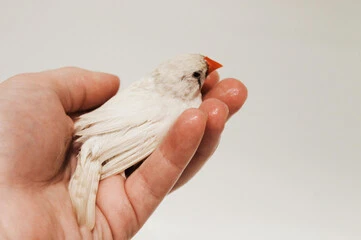
Ever wondered what pairing two whites creates? Let’s crack the code.
Genetic Roulette: Color Outcomes
As breeder Chelsea of Tacoma’s White Finch Aviary found, crossing normals × whites often yields pied chicks. Why? Pied parents carry recessive genes that resurface.
Predict Your Offspring:
- White (WW) × Normal (GG): 100% pied youngsters.
- Pied (WG) × Pied (WG): Expect 25% white, 50% pied, 25% normal.
My experiment: I paired a fully-pied gray hen with a white cock—most chicks had striking “snowflake” speckles!
For nesting tips, explore finch bird egg care techniques.
Zebra Finch Color Variations: Nature’s Palette
Why settle for ordinary? Here’s your rainbow rundown:
Stunning Varietals to Know
- Pied: Irregular white patches over classic stripes.
- Charcoal: Smoky gray body, black teardrop marks.
- Florida Fancy: Cream base + soft orange cheek patches.
- Black-Face: Males boast dark masks—rare with white genes.
Mutation Tip: Whites emerge when Pied × Recessive Silver parents mate.
FAQs: All Your Burning Questions Answered
Q: Are albino zebra finches high maintenance?
A: White types thrive with extra UV light and mite-prevention—but aren’t inherently fragile.
Q: Why’s my white zebra finch suddenly weak?
A: Redness/wobbliness suggests mites. See a vet urgently!
Q: Can white finches live with normal zebra finches?
A: Absolutely! Group dynamics trump color—just monitor aggression.
Q: Do snowy finches cost more?
A: Yep—recessive genes drive prices to $50‒100 vs. $20 for grays.
Q: Can I release white zebra finches into the wild?
A: Never! Pet-bred birds can’t survive predators or elements.
Conclusion: Your Journey as a White Finch Guardian
Caring for a white zebra finch blends awe with responsibility—from decoding genetics to nursing mite-stricken chicks. Whether you’re rehabbing one like that Reddit hero or admiring your first fledgling, remember: these snowflakes aren’t just mutations; they’re winged marvels reminding us life’s best surprises come in miniature.
Got stories or questions? Share your white finch moments below! Tag a bird-loving friend to spread the magic—or browse our species guide for more avian wonders. Together, let’s cherish every fluttering gem. 🕊️

